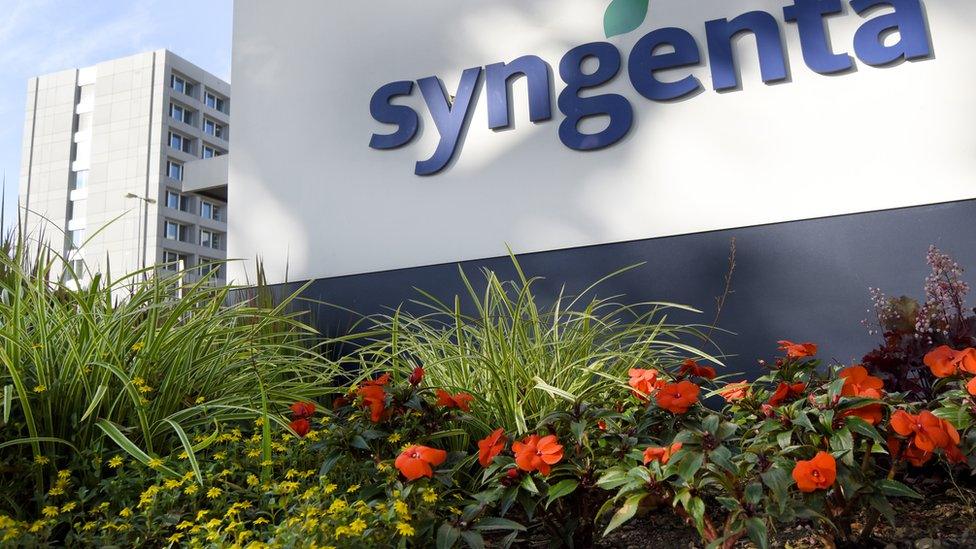Switzerland to vote on pesticide ban 'in 3 years'
- Published

Farmers in Switzerland may have to end their use of synthetic pesticides
Swiss citizens will get the chance to vote on a complete ban on the use of synthetic pesticides after campaigners secured enough signatures to force a referendum.
More than 100,000 Swiss signed the call for a ban that would apply to all farmers, industries and imported foods.
If the vote is passed, Switzerland would become only the second country after Bhutan to implement a full ban.
But it could be at least three years before voters go to the poll.
Over the past 12 months, the future use of pesticides has been a hotly debated topic across Europe.
After months of deadlock, the EU re-approved the widely used weedkiller, glyphosate, for five years. France though says it aims to ban the chemical in the country within three years.
Just a few weeks ago, the EU agreed a near total ban on the use of neonicotinoids, the most widely used class of insecticides in the world.
The Swiss initiative would go much further than the handful of towns and regions around the world that have already banned all synthetic pesticides. It would also be of greater global significance than the ban imposed by Bhutan, external in 2013, as Switzerland is the home of the world's biggest pesticide manufacturer, Syngenta.
The formal petition will be presented to the Federal Chancellery in Bern on 25 May.

The world's biggest pesticide manufacturer has its home in Switzerland
"At the beginning it started rather slowly, but then it gathered a lot of support especially from young people and then it gathered momentum and in the end we had plenty of signatures," said Antoinette Gilson who's with a group of Swiss citizens called future3 , externalthat are pushing for the ban.
The details of the signatures will be checked and transferred to the Federal Council, which is the Swiss federal cabinet. They have one year to give recommendations to parliament. The legislators then have two further years to accept the initiative and schedule a vote, or to come up with a counter initiative that could also feature on the ballot.
If passed, all synthetic pesticides would be phased out over a period of 10 years.
"To not use any pesticides will trigger a complete change in agricultural practices," said Antoinette Gilson.
"It might be difficult to go through, but in Switzerland already around 13% of farmers are organic. I talk to a lot of them and I have not met one who has regretted giving up pesticides."
The rules would also apply to imports which could have significant impacts on neighbouring countries as Switzerland imports almost 500kg of food per head of population, according to figures from the Federal Customs Administration.
Farmers and industry representatives are dismissive of the idea of the referendum, saying that it is too extreme and will not gain popular support.
"The initiative is too radical and overshoots the goal," said Anna Bozzi from Science Industries Switzerland in a statement.
"Plant protection products are indispensable to ward off diseases and pests. A general ban would affect tremendously the yields as well as the quality of the agricultural products in Switzerland. The import ban would thwart supply and drive up prices."
Supporters of the initiative think that if the Switzerland vote is eventually carried, it will have knock-on effects for others.
"I am convinced that other countries may follow suit," said Prof Edward Mitchell from the University of Neuchâtel.
"Switzerland with its direct democracy system is somewhat different from other countries, making such a change perhaps more likely in the short term.
"This puts us in a privileged position to act proactively rather than in response to government actions, and with this goes a responsibility to do so.
"This is my personal opinion and it is likely that many Swiss citizens also think this."